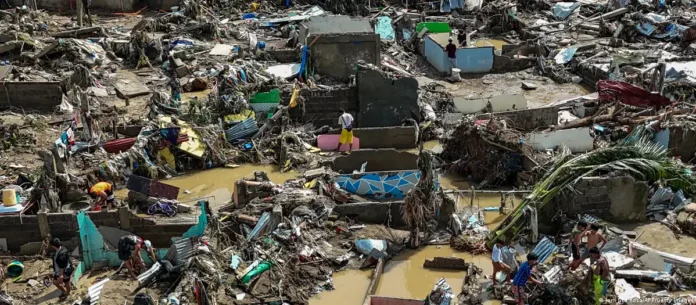Written by Were Kelly
The Philippines is once again rallying in the face of disaster, its renowned resilience tested by a devastating twin blow from nature. As communities reel from Typhoon Kalmaegi, which left a trail of destruction and over 188 dead earlier this month, the nation is battening down the hatches for the arrival of another severe storm, Fung-wong, known locally as Uwan.
The consecutive crises have prompted the government to declare a state of national calamity, mobilising all available resources for rescue and relief operations.
Typhoon Kalmaegi, which struck on 4th and 5th November, unleashed catastrophic winds and torrential rains, triggering massive flooding and landslides across several islands.
The death toll continues to rise as rescue crews reach isolated communities, with thousands more displaced from their ruined homes.
A disaster agency official, coordinating the overstretched response efforts, stated, “We are facing a cascade of disasters. Our teams are exhausted but resolute, and the spirit of bayanihan is our greatest asset.”
This spirit of communal unity and cooperation was visibly alive in evacuation centres and neighbourhoods, where survivors helped each other with food, shelter, and clearing debris.
One evacuee, having lost his home, expressed a common sentiment: “We have lost everything but not hope. We help each other, that is how we survive.”
Yet, beneath this resilience lies a grim recognition of a worsening new normal. The Philippines, an archipelago situated in the Pacific typhoon belt, is consistently ranked as one of the world’s most climate-vulnerable nations.
A local community leader, surveying the damage, voiced a plea for global awareness: “We rebuild, only to be hit again. The world must see our struggle and the real cost of climate change.”
As the nation prepares for the next storm, the immediate focus remains on saving lives and providing humanitarian aid.
However, the recurring devastation underscores an urgent need for robust, long-term climate adaptation strategies to protect a population living on the front lines of a planetary crisis.



















